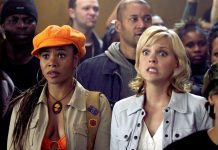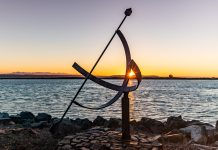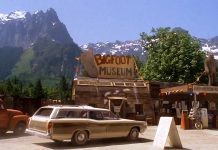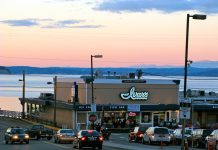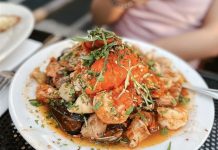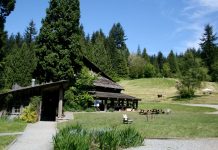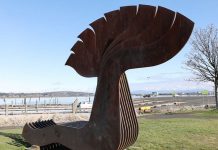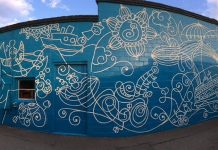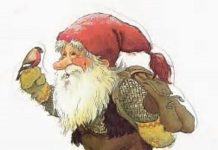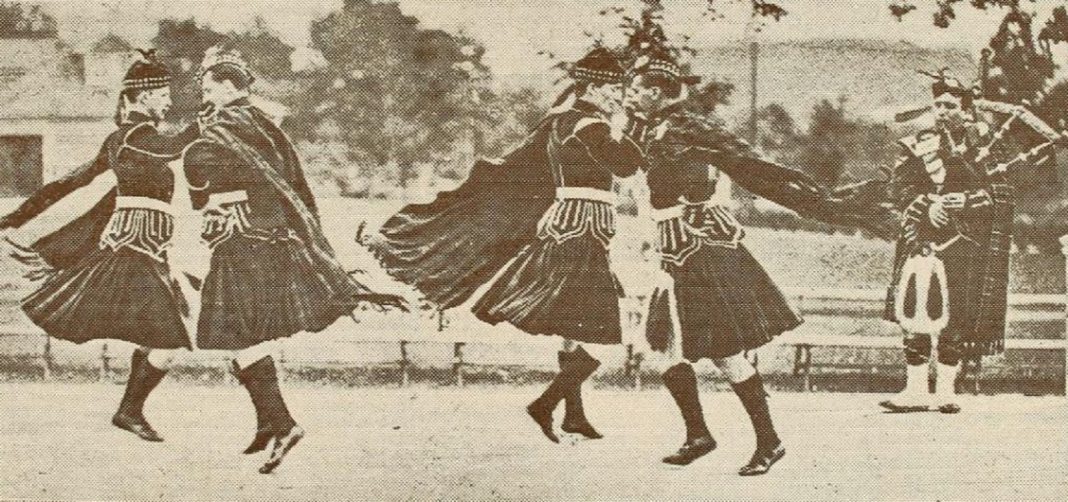Everett has a rich Scottish heritage. In 1904, the city welcomed a noted band of Scottish musicians, the world-famous Canadian “Kilties.”
Scots in Everett
Scottish immigrants and their descendants formed organizations in Everett to keep the culture of Scotland alive in their new home. At the turn of the century, this included the Caledonian Society, which held special events yearly. Caledonia is an ancient name for Scotland. Their biggest annual event was Burns Night (January 25), which celebrates the life and work of Robert Burns (1759-1796), a famous Scottish poet and lyricist.
The club’s events often included music. The Caledonian Society’s Grand Scottish concert for Burns Night in 1902 is a good example. A packed program featured bagpipe music by pipe major Peter MacDonald, Highland dancing and folk songs. Some of the dancers traveled from Victora, B.C., to perform. The event closed with a stirring rendition of the Star-Spangled Banner and Auld Lang Syne. Open to the general public, the concert was held at the Everett Theatre on January 25. Built in 1901 at 2911 Colby Avenue, it was one of the best theaters in town.
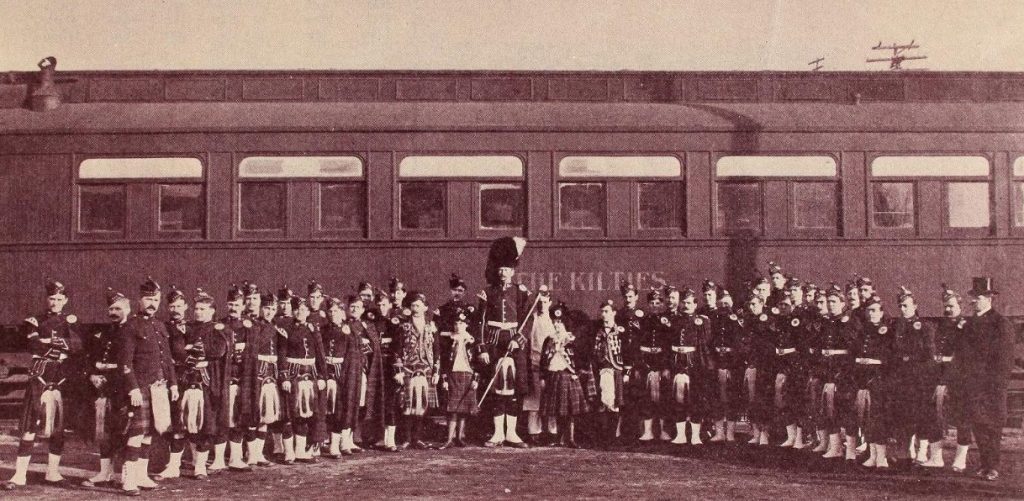
The Kilties are Comin’!
The Everett Theatre once again echoed with bagpipe music when the Kilties performed on Valentine’s Day, Sunday, February 14, 1904, as part of a whirlwind tour of the Pacific Northwest.
Perhaps the most well-known Scottish band of the era, the Kilties, hailed from Belleville, Canada. Made up of veterans from the 48th Highlanders of Canada, or Gordon Highlanders, the Kilties was a famous touring band at the time. Playing everywhere, from major cities to mining camps, they made a striking sight in their dark red and green kilted uniforms, complete with red jackets and plaids.
The band consisted of 40 musicians, ten soloists, ten vocal choir members, six Highland dancers, two bagpipers, four British military buglers and a seven-foot tall “giant drum major” named Donald MacCormack.
Another part of the Kilties was the Clan Johnstone Troupe dancers and pipers from London’s Palace Theater. They were led by Albert Johnstone, called by some the “world’s first piping superstar.” Born in 1864 in Lochee (Scotland) to a blacksmithing family, Johnstone became a champion Highland dancer and master bagpiper. He played for Queen Victoria and even at the 1889 Paris World’s Fair before joining the Kilties on their world tour. Cissie Grant was the principal female dancer. Besides a handful of female dancers, the group was all men.
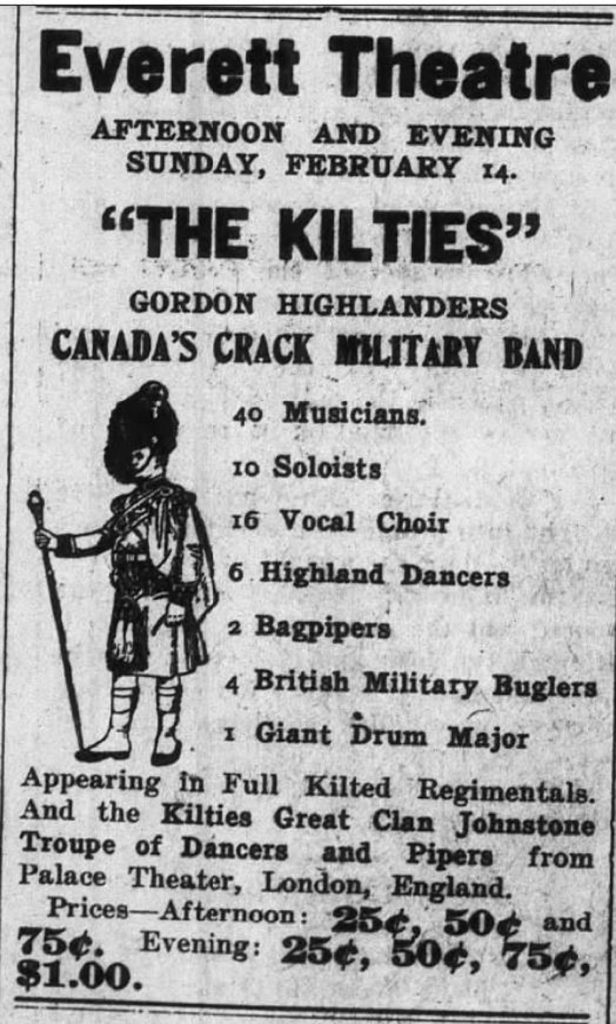
Kilties Concert in Everett
Matinee tickets in Everett cost 25, 50 or 75 cents, depending on the seat. Evening show tickets were 25, 50, 75 cents or a dollar. Tickets were for sale at Dwight Darling’s drugstore in the Realty Block. Kilties band owner George W. Griffth, accompanied by his wife, arrived in Everett a week early to finalize arrangements.
The concert was, the Everett Daily Herald newspaper told readers on February 8, “one of the greatest musical events of the season.” It was something all musical lovers could enjoy, not just Scots. “Scottish songs,” the Herald continued February 10, “like the Scottish character bear the impress of the nation’s experiences; and those who have lived among the Scottish people and entered into companionship with them, can fully appreciate the depths of meaning which lies in the old Scotch songs and melodies. To all natives of Auld Scotia, and those who have known the rich, sweet music of that staunch old land, the announcement that ‘The Kilites are comin”’ will mean a bright spot in their lives. ‘The Kilites’ choir and vocal soloists sing all the old songs in a manner and with the feeling that only men of Scotland can.”
The Kilties performed a mix of traditional Scottish and popular contemporary music. A souvenir booklet gives an overview of their traditional repertoire. This included the regimental march of the Gordon Highlanders “The Cock O’The North,” “The Brae’s O’Mar,” “Scots Wha Hae,” “Loch Lomond,” “Jock O’Hazeldean,” “The Kilties March” by Albert Johnstone, “The British Grenadiers,” “The Maple Leaf,” “Pibroch of Donuil Dhu,” “The Campbells are Comin’,” “Annie Lauire,” and “Auld Lange Syne.”
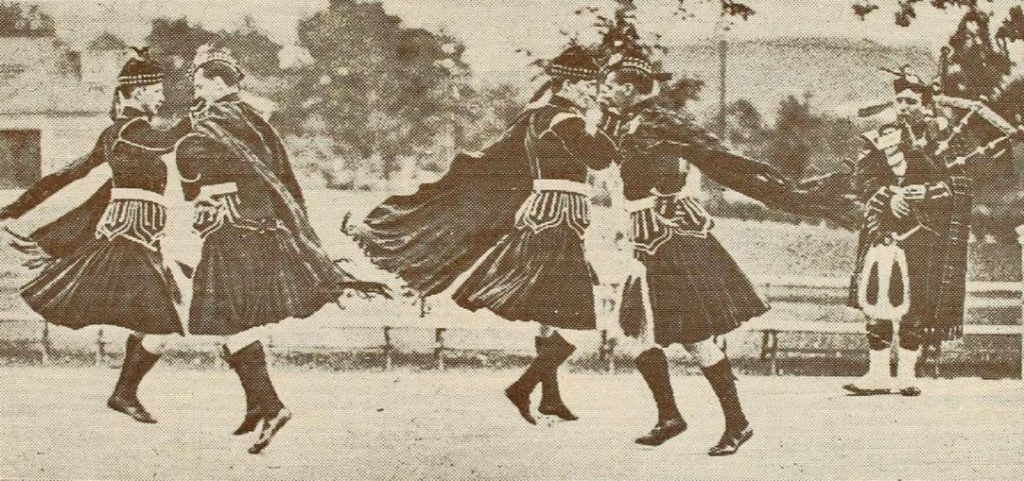
A Scottish Legacy
The Kilties returned briefly to Everett in June 1913, parading and performing alongside the elephants, lions and charioteers of the Sells-Floto Circus. This circus and sideshow organization, a combination of the Floto Dog and Pony Show and the Sells Brothers Circus, toured the United States and Canada in the early 1900s.
Although its members came and went, the Kilties continued to perform internationally over the next few decades, visiting 20 countries on 16 world tours. The band disbanded in 1938, but members sometimes held reunions.
The Everett Theatre, in which the Kilties played, continues today. After its 1989 closure, it was saved and restored through the efforts of the Historic Everett Theatre Society. The theatre now hosts a wide variety of plays, concerts, and other events.
Although the Kilties’ Everett concert happened over a hundred years ago, Scottish heritage remains strong in Bellingham through organizations like the Kenmore & District Pipe Band and Clan Heather Dancers. The Kilties would be proud.

